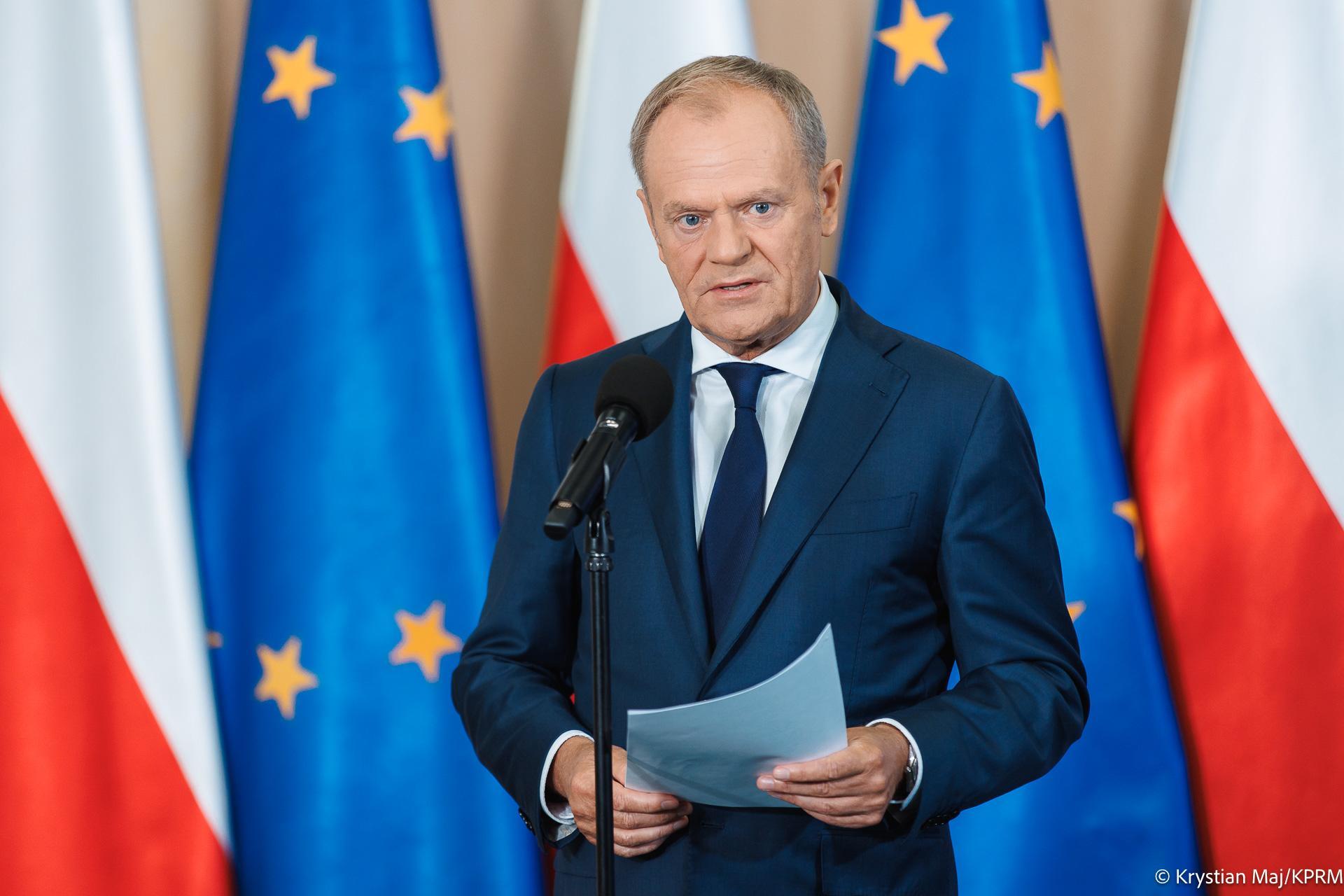The task of the state is to protect and defend the border
10.06.2024
At Monday's exit meeting in Białystok, the Council of Ministers adopted a resolution on the establishment of the 'National Deterrence and Defence Programme – Shield East'. The Government also adopted a resolution on the situation on the eastern border of the Republic of Poland. Later this week, the second part of the Council of Ministers meeting is scheduled to work on next year's draft budget and minimum wage.

Approximately PLN 10 billion for the 'Shield East' programme
In May, Prime Minister Donald Tusk announced the creation of a 'National Deterrence and Defence Programme - Shield East.' A comprehensive defence infrastructure will be established between 2024 and 2028 to counter threats from the East. A significant sum of approximately PLN 10 billion will be dedicated to this crucial endeavour. This is the most significant operation to strengthen Poland's eastern border and NATO's eastern flank since 1945.
'Shield East' is not only a defensive element but, first and foremost, a deterrent and repulsion of war from our borders.
It is the paramount duty of the state to safeguard and uphold the integrity of our borders. The unwavering commitment of the Polish state is to utilize all available methods to ensure the safety of our borders, a statement reiterated by the head of the Polish Government after a meeting of the Council of Ministers in Białystok.
Under this initiative, strategic warning systems and fortified structures will be erected along the border belt between Belarus and Russia. An infrastructure will be put in place to combat a possible aerial attack, for example, by drones.
The National Deterrence and Defence Programme's objectives are to reduce enemy mobility through the construction of anti-tank ditches, the dredging of drainage ditches, or the reinforcement of natural terrain features.
Securing and strengthening the eastern border
The hybrid attack involving illegal migrants on the Polish-Belarusian border has been escalating for several weeks. Since the beginning of the year, the services have already recorded more than 18,000 attempts to cross our border illegally. The Council of Ministers also adopted a resolution on the situation on the eastern border of the Republic of Poland, in which, among other things, it expresses its gratitude and appreciation to the officers and soldiers on duty and guarding our security.
We have adopted a resolution, the practical consequence of which is a decree of the Minister of Internal Affairs and Administration on the creation of a zone – this zone on the border with Belarus, which has been loudly discussed in recent days, said Donald Tusk.
The Government, in a collaborative effort, consulted with stakeholders to develop the elements of this regulation. These provisions are intended to make it more difficult to smuggle illegal migrants across the Polish-Belarusian border. Thanks to the decree of the Ministry of the Interior and Administration, we will ensure better working conditions for the services: the Border Guard, the Armed Forces and the Police.
Prime Minister Donald Tusk also reassured the public that the Government is committed to using all available resources to support the affected communities in these areas, which the war and the creation of this special zone have impacted.
The zone won't be deep – it will be a few tens of kilometres long and about 200 metres deep. There are places in the reserves where it will go about 2 km, but these are short distances, and they are related to the presence of smugglers who operate mainly in forested areas, not directly on the border but just a kilometre, a kilometre and a half, or two kilometres away. Therefore, the zone in these places will be wider, stressed the Head of the Polish Government.
The border cannot be crossed with impunity by illegal migrants organised by the Belarusian and Russian authorities. This practice is called hybrid warfare by the whole world. Therefore, the Polish state is obliged to seek all available methods to protect our border.
Legal recommendations – use of weapons by soldiers at the border will not be a crime
In March, Polish soldiers were detained after using weapons on the border with Belarus. The Government is working on amending legislation to allow officers to legally use their weapons in the event of a threat to their own life or health and that of others.
After all, our Armed Forces, Border Guard and Police do not shoot people but use weapons for warning purposes. These weapons have been used more than 1,000 times in the last six months at the border, Donald Tusk explained. We want soldiers to feel safe from these legal circumstances shortly, which does not mean they will be exempt from respecting the law, he added.
The Government discussed amendments to the draft law on homeland defence and certain other laws recommended by the Minister of Defence The first part of this draft refers to the revised treatment of soldiers and officers who use weapons in an emergency situation.
Deputy Prime Minister, Head of the Ministry of Defence Władysław Kosiniak-Kamysz has presented draft legislation defining under what circumstances, related to a threat, the use of weapons by a soldier at the border will not be a breach of the law. It is about repelling a direct unlawful attack on the inviolability of a state border, on the life, health or freedom of a soldier or another person; disobeying a call to drop a weapon; a situation in which someone unlawfully attempts to take a firearm from a soldier or another person entitled to possess it, Donald Tusk said.
The proposed amendments also introduce the possibility of using a branch of the Polish Armed Forces on the territory of a Polish state without having to declare a state of emergency or martial law. Until now, this has been impossible.
Cooperation at the border
At the Polish-Belarusian border, the border guards are also supported by the police and the military. Their presence has made a qualitative difference in countering collective attempts to cross the border more effectively.
Today, the cooperation between Police, Border Guard, and the Armed Forces at the border is improving. That is not only the legal issues that we are currently regulating, but also logistics and increasing experience that will make our soldiers, Border Guard, and Police more effective in preventing illegal border crossings, the Prime Minister said.
Until now, regulations have prevented soldiers from using a water cannon, for example. Only the police are authorised to do this.
Explosion at Mesko armaments plant
Prime Minister Donald Tusk received a briefing from the Minister of the Interior and Administration on the situation in Skarżysko-Kamienna at the Mesko armaments plant, where an accident occurred at around 10 am today, leaving one person dead and another in hospital.
For obvious reasons, we are very vigilant and sensitive to all such situations. For now, there is no reason to assume that any external force is behind this dramatic incident at the Mesko factory. However, the heads of the relevant services are on site, and we will undoubtedly check every detail, Donald Tusk announced.
A special commission has started work at Mesko S.A. to investigate the circumstances of the incident. Also, at the Polish Armed Forces Group level, a commission has been set up to investigate the circumstances of the incident, analyse the circumstances that led to the accident, verify procedures, and possibly recommend changes to procedures to ensure maximum occupational safety.



